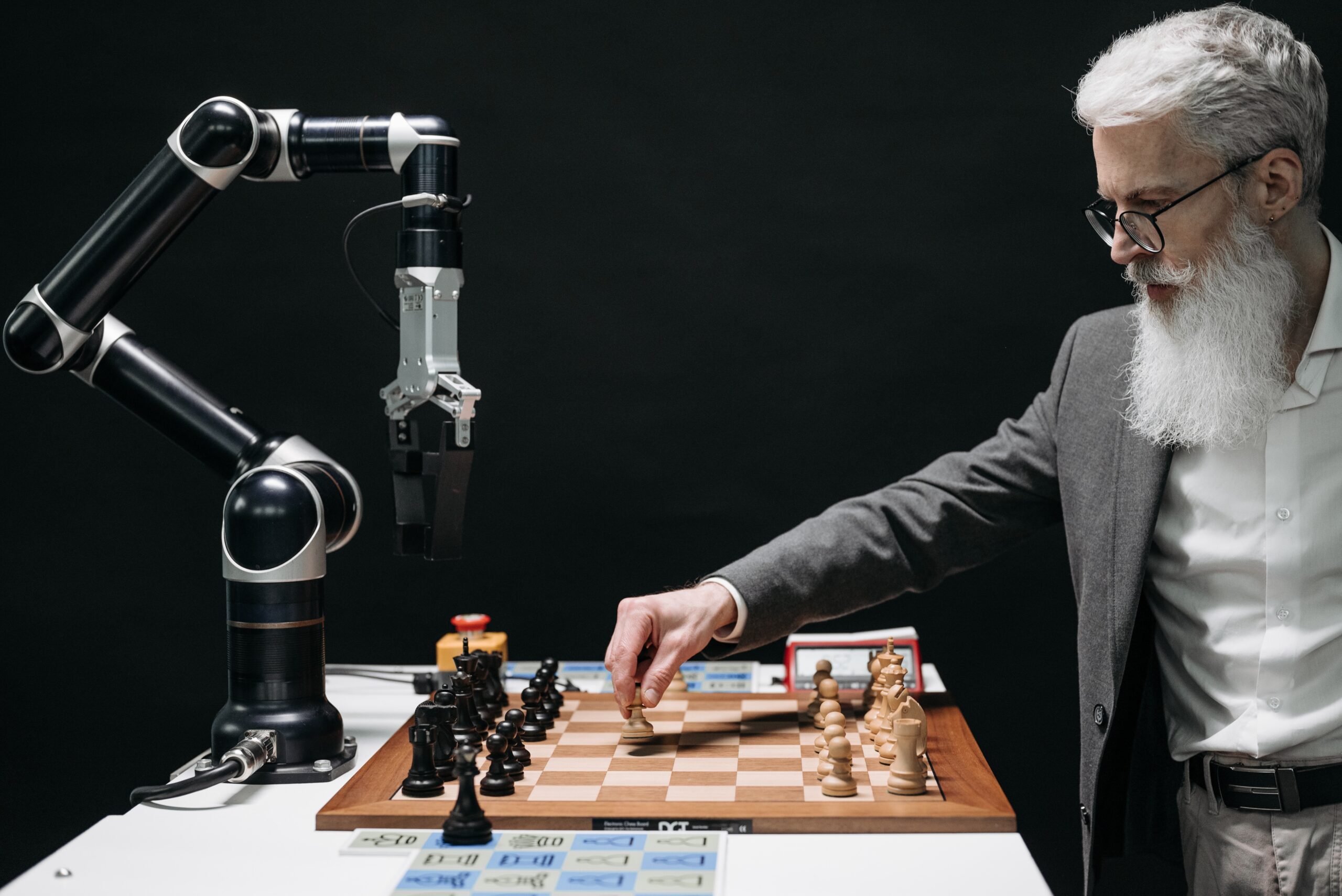The Dawn of the AI Era
As we progress further into the 21st century, Artificial Intelligence (AI) continues to revolutionize various industries, raising questions about the future of many professions. A study by the McKinsey Global Institute predicts that by 2030, around 800 million jobs worldwide could be replaced by automation. While this technological breakthrough facilitates efficiency and accuracy, it could also render several occupations obsolete. Let’s delve into the details of the professions predicted to be overtaken by AI in the not-so-distant future.

Healthcare Professionals
Healthcare has witnessed significant transformations due to AI. Innovative technologies are streamlining diagnoses, medical imaging interpretation, and even patient monitoring. AI algorithms have demonstrated the ability to detect conditions such as cancer with similar or even superior accuracy compared to human physicians. The adoption of AI doesn’t suggest that doctors will become obsolete, but it could replace specific roles, especially those revolving around diagnostics and routine check-ups.
Financial Analysts and Accountants
Financial services and accounting, characterized by a high volume of repetitive tasks and number-crunching, are ripe for AI disruption. Machine learning algorithms can analyze financial markets, predict trends, and provide actionable insights faster and more accurately than humans. Similarly, AI can automate routine accounting tasks, reducing the need for human intervention. However, while AI will take over mundane tasks, it will enable financial analysts and accountants to focus on strategic planning and decision-making roles.
Transportation Jobs
Autonomous vehicles are no longer a figment of the imagination; they are becoming a reality. The advent of self-driving technology could replace jobs involving trucking, taxi services, and delivery services. Companies like Waymo, Tesla, and Uber are investing billions into perfecting autonomous driving technologies, which will inevitably transform the transportation industry.
Retail Workers
Automation and AI are increasingly prevalent in the retail industry, from automated checkout systems to chatbots and AI personal shopping assistants. Amazon’s cashier-less “Go” stores provide a glimpse into the future where AI technology could potentially replace millions of retail jobs.
A Paradigm Shift in the Entertainment Industry
While AI’s influence spans across multiple sectors, its impact on the entertainment industry has been substantial. AI is not only changing how entertainment is produced and consumed, but also how we engage with it. Let’s take a closer look at the online casino industry to understand how AI is reshaping this sector.
Online Casino Dealers
As AI becomes more advanced, the need for human intervention in online casinos is decreasing. Traditional human croupiers are being replaced by AI croupiers in online platforms. An example is LegjobbKaszino.hu, a detailed online casino review site known for its fast payouts, where artificial intelligence is used to manage games such as poker, blackjack and roulette. These artificial intelligence croupiers not only optimize performance but also eliminate human error, providing users with a more seamless gaming experience.
AI technology has also enabled online casinos to optimize their payout systems. This ensures that players receive their earnings quickly and accurately, enhancing the overall customer experience. Online casinos with fast payouts that are featured on LegjobbKaszino.hu are becoming the norm thanks to artificial intelligence.
Further Examples of AI Impact
Education Sector
AI’s influence extends to the realm of education as well. AI-powered tutoring systems can offer personalized instruction to students, adapting to their learning pace and style. The technology can also automate administrative tasks such as grading and scheduling, which could potentially reduce the demand for some roles within the education system.
Customer Service
Many organizations are already implementing AI chatbots to handle their customer service. These bots can provide instant responses to customer inquiries, enhancing efficiency and customer satisfaction. As these technologies become more refined, we may see a further decline in human-operated customer service roles.
Journalism
AI’s ability to process and analyze large volumes of data swiftly also has applications in journalism. News organizations are starting to use AI to automate the creation of news reports, particularly for financial and sports news. While it’s unlikely that AI will replace all types of journalism, it could replace certain roles that involve the reporting of objective facts.
Adapting to an AI-Driven World
As AI continues to encroach upon traditional job roles, it’s important for workers to adapt and acquire new skills to remain employable. Fortunately, the AI revolution is also creating new job opportunities in sectors such as data science, machine learning, and AI ethics.
New Opportunities
While AI may replace certain jobs, it is also generating new ones. Roles like AI specialists, data scientists, machine learning engineers, and AI ethics consultants didn’t exist a few decades ago. These are now some of the fastest-growing job categories. As AI continues to advance, we can expect the emergence of more such roles that require a deep understanding of AI, data analysis, and ethical considerations.
The Importance of Upskilling
In light of AI’s ongoing impact on the job market, lifelong learning and upskilling have become essential. People need to develop new skills that complement AI technology. This includes skills related to data analysis, AI operation and maintenance, and even skills related to understanding and addressing ethical issues arising from AI use.
The Changing Landscape
The introduction of AI into the workforce is bringing about profound changes. While AI is projected to replace many jobs, it is also expected to create new opportunities. The key to thriving in this new landscape lies in our ability to adapt and acquire the skills needed to work alongside AI.
In the end, we must remember that technology is a tool created by and for humans. Its goal is to aid us, to make our lives more efficient, and to open up new possibilities. As AI takes over certain tasks, it gives us the opportunity to focus on more complex, creative, and interpersonal tasks — areas where humans still excel. As we continue to navigate this exciting new era, it is clear that our adaptability and ingenuity will guide the way.
The rapid development and integration of AI across different sectors signal a future where many jobs will be supplanted by this technology. However, this doesn’t necessarily mean that AI will take away all jobs. It will likely create a shift in the job market, where new opportunities related to AI and other tech fields will emerge. It is therefore incumbent on us to adapt and upskill ourselves to stay relevant in this fast-changing world.
While the idea of machines replacing humans in various fields might seem intimidating, it is essential to remember that AI, at its core, is a tool. It exists to help us improve our productivity and accuracy, giving us more room to focus on strategic and creative tasks, thereby pushing the boundaries of human potential.
